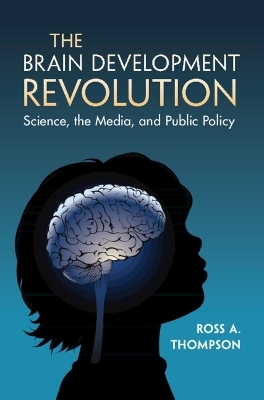
The Brain Development Revolution
Science, the Media, and Public Policy
Seiten
2023
Cambridge University Press (Verlag)
978-1-009-30425-2 (ISBN)
Cambridge University Press (Verlag)
978-1-009-30425-2 (ISBN)
Today we perceive children and the influences on them with regard to their developing brains. This book documents how brain development became the dominant lens for understanding children's development, the benefits and missed opportunities for children that resulted, and why brain development compels our attention.
The science of human development informs our thinking about children and their development. The Brain Development Revolution asks how and why has brain development become the major lens for understanding child development, and its consequences. It describes the 1997 I Am Your Child campaign that engaged public attention through a sophisticated media communications effort, a White House conference, and other events. It explores the campaign's impact, including voter initiatives to fund early childhood programs and a national campaign for prekindergarten education, but also several missed opportunities. The study examines why brain development compels our attention, why we are – but shouldn't be – neurodeterminists, and the challenges of communicating developmental brain science. This book examines the framing of the brain development story, the selectivity of the messaging, and overpromising the results of early programs. Lastly, it discusses proposals for how science communication can be improved to better serve children and the public.
The science of human development informs our thinking about children and their development. The Brain Development Revolution asks how and why has brain development become the major lens for understanding child development, and its consequences. It describes the 1997 I Am Your Child campaign that engaged public attention through a sophisticated media communications effort, a White House conference, and other events. It explores the campaign's impact, including voter initiatives to fund early childhood programs and a national campaign for prekindergarten education, but also several missed opportunities. The study examines why brain development compels our attention, why we are – but shouldn't be – neurodeterminists, and the challenges of communicating developmental brain science. This book examines the framing of the brain development story, the selectivity of the messaging, and overpromising the results of early programs. Lastly, it discusses proposals for how science communication can be improved to better serve children and the public.
Ross A. Thompson is Distinguished Professor of Psychology at University of California, Davis, USA. He is an internationally recognized authority on the psychological development of young children and the applications of developmental science to public policy. His work integrates understanding of the developing brain with early experiences in both typical and at-risk children, and he consults extensively to legislative committees, public agencies, and private foundations.
1. Science does not speak for itself; 2. The Supreme Court considers adolescence; 3. Dispatches from the laboratory; 4. I am your child; 5. 'Follow the science'; 6. Framing developmental science; 7. Who speaks for developmental science?
| Erscheinungsdatum | 30.08.2023 |
|---|---|
| Zusatzinfo | Worked examples or Exercises |
| Verlagsort | Cambridge |
| Sprache | englisch |
| Themenwelt | Geisteswissenschaften ► Psychologie ► Entwicklungspsychologie |
| Medizin / Pharmazie ► Medizinische Fachgebiete ► Pädiatrie | |
| Studium ► Querschnittsbereiche ► Prävention / Gesundheitsförderung | |
| ISBN-10 | 1-009-30425-9 / 1009304259 |
| ISBN-13 | 978-1-009-30425-2 / 9781009304252 |
| Zustand | Neuware |
| Haben Sie eine Frage zum Produkt? |
Mehr entdecken
aus dem Bereich
aus dem Bereich
das Manual zur psychologischen Gesundheitsförderung
Buch | Hardcover (2023)
Springer Berlin (Verlag)
39,99 €
Orthomolekulare Medizin in Prävention, Diagnostik und Therapie
Buch | Hardcover (2022)
Thieme (Verlag)
71,00 €


